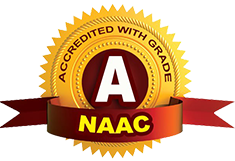Academic Stream
At SIEM, semester pattern is followed as per Pune University. An academic year consists of two semesters. The Fall (Odd) Semester begins in June and the Winter (Even) Semester in December. The academic schedule mentioned in the academic calendar is strictly followed.
Classroom Teaching
Qualified faculty members assigned with various theory subjects prepare course plans using the standard format provided by the institute with emphasis on ‘learning’ of the students. The instructional or lecture delivery of the faculty will be through a set of Educational Technology / Tools opted by the faculty.
The lectures lay emphasis on the following:
- Knowledge content (topics in the curriculum)
- Utility value – application in real life
- Latest developments
The classroom sessions are interactive and encourage the students to think independently and inspire their creativity. The faculty ensures that the students in the class have assimilated the content projected. High level of discipline is maintained in the classroom. The faculty members are empowered to curb any disturbance and ensure that the time is used fruitfully. To this effect, students are expected to maintain decorum and refrain from causing any disturbance in the classroom. Camera cell phones are prohibited in the campus. Students are advised not to carry cell phones to the classrooms and laboratories. Attendance is taken by the faculty concerned at the beginning of each session.
Laboratory Classes
Laboratory sessions are given utmost importance at SIEM. All the students are expected to be regular and learn the practical aspects of the subject and develop the necessary skills to become professionals.
In order to facilitate interaction among the students and develop team spirit, the students are expected to carry out experiments in groups. The students are expected to:
- Read and understand the theory behind the experiment in advance
- Come to the lab in time with prescribed Dress Code for the lab and Bring the observation note book
The variables in the experiment might be given differently for different batches and hence it is expected that the students should complete all aspects of experiment before leaving the lab. The record of the experiment written neatly in the laboratory record should be submitted in the subsequent class which will be evaluated by the faculty on the same day and returned to the students. Students who have not submitted their records and those who come late to the lab class will lose their attendance. The students are expected to adhere to the safety precautions prescribed for the lab. In case of any breakage of equipment due to carelessness of the students, the students concerned will be fined. Any malpractice done by the students will result in disciplinary action.
All the experiments in the laboratories are updated and obsolete ones are removed regularly. The students are expected to keep pace with the technological developments and equip themselves with the latest in the field. Each student is expected to learn the experiments and train himself / herself to do the experiment individually during examination.
Assignments/Projects
Students are continuously assessed throughout the course and due weight-age for this is given in the final assessment. Assignments / Mini Projects / Seminars by students form part of continuous evaluation for both theory as well as lab classes. Faculty members inform the students about the topics and due dates for the assignment / mini project / seminar well in advance and motivate the students to complete in time. Evaluation for these will be based on the following:
- Originality
- Creative Ideas
- Research Papers Referred
- Presentation Skills
- Technical Content College Library
Library and Information Center
The purpose of College Library is to support the educational mission of the College by anticipating and fulfilling the information needs of the diverse student, faculty, administration, staff, and community populations. The goal of the Library program is to prepare all students transfer, vocational, and lifelong learners to function effectively in a highly technological society with an information-based economy. Library systems are designed, and the staff is organized and committed to achieving the following objective: to help users develop information competency, a broad-based literacy that includes the skill to identify, retrieve, evaluate, and apply information to a problem-solving context. The library at SIEM is using RFID (Radio Frequency Identification Device) for issuing and returning of books, which makes the system fully automatic.
Overview:
Our central library provides good learning materials through CD’s, good journals, national and international video conferences and discussion rooms.
- Total No. of Books in The Library: 8000(approx.)
- Total No. of Reference books in the Library: 1500
- Total No. of Journals/Periodical (National & International): National: 54 & International: 21
- Library Timings: 8.30 am to 10.00 pm.
- Total Magazines: 15
- e-Journals Subscriptions IEEE & JGATE, ASTM Digital Library
More than 500 volumes are added to its collections annually. The library follows an open access system.

